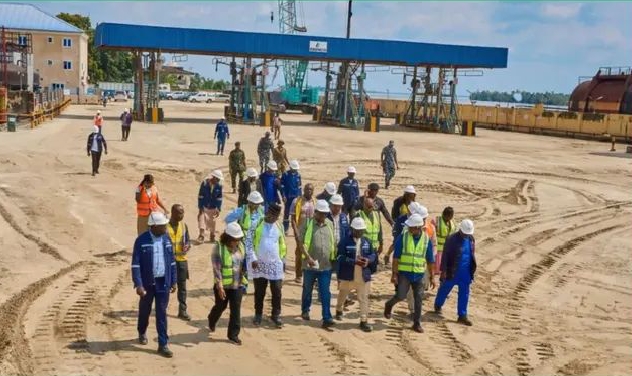
Mkpoikana Udoma
Port Harcourt — Nigeria’s push to expand indigenous refining capacity has begun to restore investor confidence across the petroleum value chain, as the Federal Government says reforms under the Renewed Hope administration are triggering renewed interest from both local and international operators.
Minister of State for Petroleum Resources (Oil), Sen. Heineken Lokpobiri, disclosed this during an inspection of a modular refinery owned by Ebenco Global Link Ltd in Koko, Delta State, describing the project as evidence that investors are responding positively to the government’s incentives and policy stability.
According to him, the modular refinery initiative is fast becoming a critical pillar in Nigeria’s drive to eliminate imports, deepen midstream investments, and strengthen the country’s energy security.
“The progress we are recording in our upstream sector must flow down to the midstream and downstream sectors for our people to truly feel the impact, and it is on this note that we continue to support industry players, both indigenous and international, in this regard,” Lokpobiri said.
The Minister noted that indigenous refiners now feel more confident investing in fabrication yards, processing plants, and supply-chain assets because of improved regulatory stability and clearer investment frameworks introduced by the Tinubu administration.
He explained that projects such as the Ebenco modular refinery show that Nigeria is gradually shifting from a crude-export-dependent economy to one that processes more of its hydrocarbons locally.
Describing his findings at the Delta State fabrication yard, the Minister said the level of progress signalled a wider industry revival.
“During my inspection of the Modular Refinery being fabricated by Ebenco Global Link Ltd in Koko, Delta State, I was encouraged by the level of work done,” he said.
“This project reflects the steady progress in our drive to empower indigenous companies to invest confidently in our oil sector, a momentum that is clearly fueled by the reforms and incentives introduced under the Renewed Hope administration of President Bola Ahmed Tinubu.”
Lokpobiri urged more local players to take advantage of opportunities in modular refining, gas processing, and petroleum logistics, stressing that the government is focused on removing barriers that previously discouraged capital inflow.
He reiterated that the administration’s long-term plan is to build a value chain where crude is produced, processed, refined, and utilised within Nigeria for the benefit of households, industries, and the broader economy.
“Our industry players are continually encouraged to take advantage of the numerous opportunities across the value chain. The Government remains committed to sustaining a conducive operating environment, enabling all operators to thrive while strengthening our nation’s energy security and economic growth,” he added.
If current momentum is sustained, Nigeria could see a surge in modular refinery output over the next few years, potentially reducing foreign exchange pressure caused by fuel imports and creating thousands of technical jobs.
This article was originally posted at sweetcrudereports.com
Be the first to comment